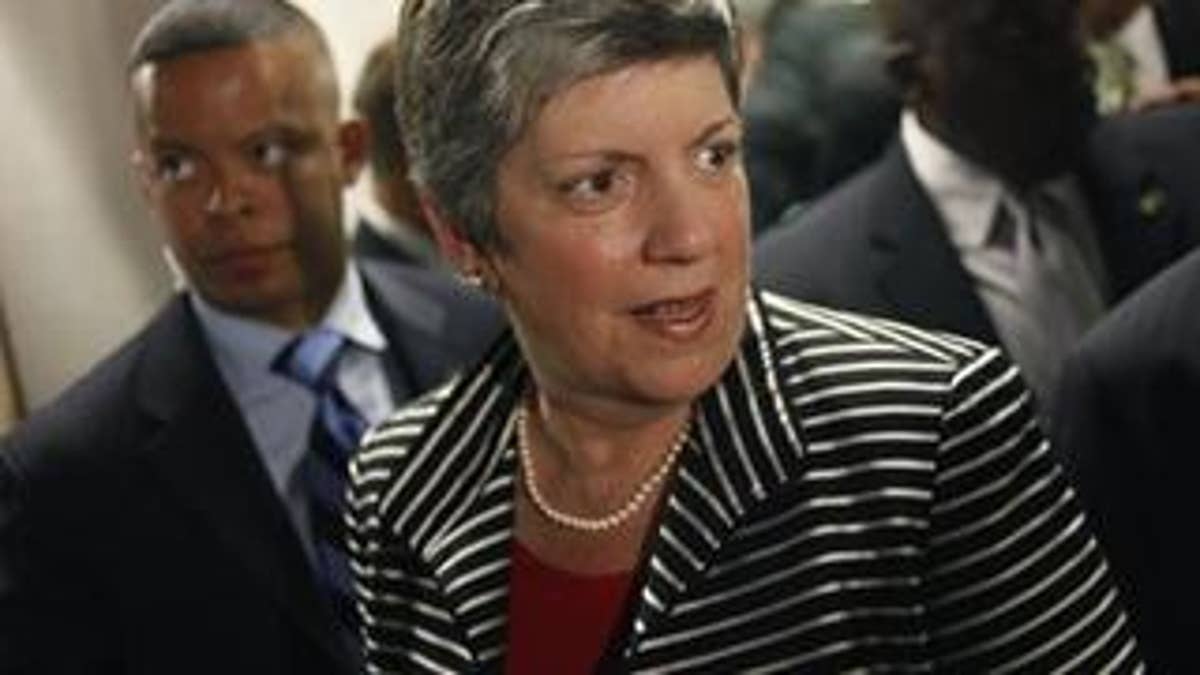
It's OK to call them terrorists again.
Homeland Security Secretary Janet Napolitano, who drew criticism for not mentioning the word "terror" during her first appearance before Congress in February, has reinserted the term into her lexicon.
The former Arizona governor used the term or its variants 23 times Wednesday during a 30-minute speech before the Council of Foreign Relations in New York.
When she testified before the House Homeland Security Committee in February, Napolitano became the first homeland security director not to mention the word "terror." Her predecessor, Michael Chertoff, mentioned terrorism seven times during his address in 2005. Tom Ridge, the agency's first secretary when the department was created in 2003, uttered the word 11 times, according to an Associated Press analysis.
But Napolitano noticeably avoided the term in February, referring to acts of terrorism as "man-caused disasters" instead.
She later admitted that it was part of a larger effort to change the tone in Washington. The Obama administration has also phased out the term "War on Terror," replacing it with the less sinister "overseas contingency operation."
The switch "speaks for itself," Secretary of State Hillary Clinton told reporters in March.
"It demonstrates that we want to move away from the politics of fear toward a policy of being prepared for all risks that can occur," Napolitano told the German magazine Der Spiegel.
But now, terror is back. So, what's in a name?
Asked Friday what prompted her to start saying "terror" again, Napolitano told FOX News, "I'm not really into labels. What we're talking about is the fight against terrorism in all forms, whether it comes from abroad or indeed is homegrown and what Americans can do to combat it."
She said Americans are safer than they were prior to the Sept. 11, 2001 terror attacks, but she stressed that more work remains to be done.
"The threat of terror is always with us, we can't hermetically seal off the United States," Napolitano said. "But there are things we can do individually, locally, federally and even with international partners to make us safer."
Individually, Napolitano said Americans can always be on the lookout for unusual occurrences, like "someone taking photographs of a piece of critical infrastructure" or an unattended package left on a platform, and to report them to authorities.
"Those are the kinds of very simple things that can be done," she said. "Now we're not asking people to spy on their neighbors or do any of that sort of thing. There's a balance to be struck, but it's a careful balance and it's one that in the end, I think will make us safer."
Napolitano acknowledged an "increased presence" of homegrown extremism and called for increased cooperation on local, state and federal levels to thwart any potential attacks.
Asked whether homegrown terror risks have become a bigger threat than those overseas, Napolitano demurred.
"I don't know that you can rank them one or two," she said. "Both exist; they both must be dealt with. They are both things that we are concerned about and they're both things that we want Americans to be prepared about."




